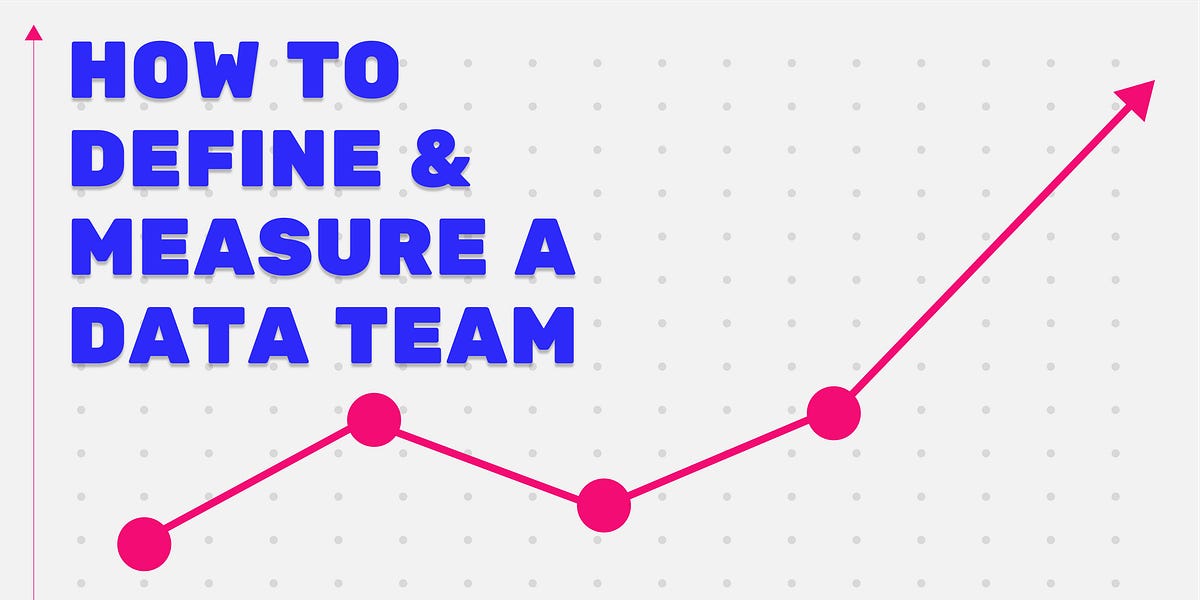
Metadata
- Author: Taylor Brownlow
- Full Title:: How to Know if Your Data Team Is Successful?
- Category:: 🗞️Articles
- Document Tags:: measuring a data team impact, Measuring a data team impact,
- URL:: https://www.blef.fr/r/2fad6285?m=6d6aa78e-ae1e-424c-b3c3-accaaae0b850
- Finished date:: 2024-01-02
Highlights
I wouldn’t say this article really gives tangible ways of doing this
How do you know if you’re successful?’ (View Highlight)
When leadership asks you for metrics to quantify the value of the data team, the question behind the question is usually ‘Do I really need a data team?’ or ‘Do I need one of this size?’. Those concerns won’t be quelled with your utilization numbers or your average time to insight (View Highlight)
For example, if you believe your data team’s role is to advise the business on good decisions, then someone can be very frustrated that you aren’t just serving them reports and numbers as quickly as possible. You believe you’re partners, and they believe you’re a service team. (View Highlight)
This practice of consistently and proactively communicating who you are, how you can help people, and what people should expect of you is one of the things I’ve noticed can distinguish good from great data teams. (View Highlight)
If you’re looking to reset the expectations of your data team, try the following: • Speak at other department meetings to introduce yourself, clarify what the role of the data team is, and how people can start engaging with the team • Meet with department leaders, and explain how your team can help them achieve their goals • Make sure all new hires are introduced to the data team and expectations are clear on how and when to engage with them (View Highlight)
Focus on how people show that they value you If you still find yourself trying to justify how valuable you are, it can be helpful to focus on how other people in the business demonstrate that they value you. (View Highlight)
data teams with embedded analysts were asked to defend their existence far less often than centralized teams (View Highlight)
I try to have every analyst a part of the projects they work on, not just supporting with numbers (View Highlight)
the question that seems to be all about metrics is probably not about metrics at all (View Highlight)
successful] I look at the strategy docs that are coming out of each department and seeing how aligned those are with the insights coming from our work. Sometimes I’ve had the analyst actually writing those memos (View Highlight)
the Director of Data at Too Good To Go, is planning to experiment with this idea in the New Year by introducing a new key metric for his team: the percentage of work tied to decision-making (View Highlight)

Metadata
- Author: count.co
- Full Title:: How to Know if Your Data Team Is Successful?
- Category:: 🗞️Articles
- URL:: https://count.co/blog/how-to-know-if-your-data-team-is-successful?utm_source=newsletter&utm_medium=email&utm_campaign=re-measure&utm_content=button
- Finished date:: 2024-06-30
Highlights
Teams that did have some kind of formalized measurement framework did so for the following reasons: • aligning the team around a common mission or goal • knowing if you’re getting closer to achieving it • staying true to your team’s values (View Highlight)
“Over the course of my career I have seen multiple data science teams who were doing fantastic work in building and sharing models getting dismantled overnight. The simple reason was that the business wasn’t seeing their value. The value was there. I could see it. But the business didn’t.” (View Highlight)
New highlights added 2024-07-01
For example, one team I spoke to has relinquished their data budget and given it back to the larger company. They then ask for business units to pay for their own analytical resource. This is perhaps the best sense of how much they value the role of the data team since they are putting a dollar value on it, and some of the best advice I received on this topic. (View Highlight)